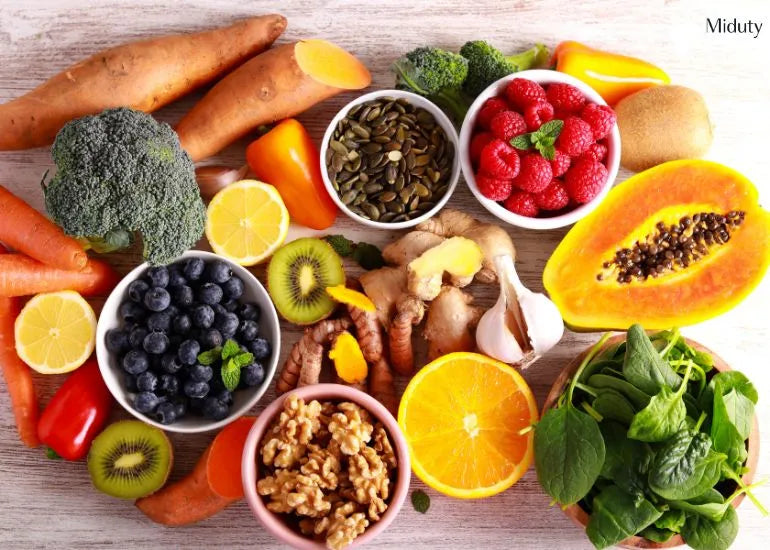
Top 20 Immunity Boosting Foods
In today's world, where germs and infections constantly surround us, diet is one of the strongest shields we carry. While no single food can guarantee perfect health, choosing the right ingredients can significantly strengthen your defenses. Think of immune-boosting foods as your daily armor—nutrient‑rich, inflammation‑fighting, and gut-supportive. When you fill your plate with foods that deliver vitamins, minerals, antioxidants, and bioactive compounds, you give your immune system the tools it needs to stay alert, respond quickly, and recover efficiently. Below is a guide to 20 power‑packed foods that help your body stand tall against illness.
Key Takeaways
1. Food is your shield — nutrients fuel and protect your immune system. A balanced diet helps your body stay resilient against daily infections.
2. Load up on C — citrus, kiwi, and peppers keep infections at bay. These vitamin C-rich foods also speed up recovery when you fall sick.
3. Go green — spinach, broccoli, and moringa strengthen defenses. Their mix of vitamins, minerals, and antioxidants supports long-term health.
4. Spice it up — garlic, ginger, and turmeric fight germs naturally. Their anti-inflammatory properties make them powerful healing foods.
5. Gut first — yogurt, legumes, and fiber power up immunity from within. A healthy gut is the foundation of a strong immune system.
Why Diet Matters for Strong Immunity?
Your immune system is constantly on duty, repairing, defending, and adapting. For it to function optimally, it needs reliable fuel. Diet matters because:
- Nutrients like vitamin C, vitamin A, vitamin D, zinc, selenium, and protein are building blocks for immune cells and antibodies.
- Antioxidants and phytochemicals from plants help neutralize free radicals and reduce chronic inflammation, which otherwise weakens immunity.
- A healthy gut — fed by fiber, probiotics, and prebiotics — houses a large portion of your immune activity (the gut‑associated lymphoid tissue).
- Poor diet (high sugar, processed food) can hamper immune cell signaling, increase oxidative stress, and shift your body into a pro‑inflammatory state.
In short: what you eat directly influences how well your immune system can protect you.
Top 20 Immune Boosting Foods
1. Citrus Fruits: Vitamin C Powerhouse
Citrus fruits like oranges, lemons, and grapefruits are among the richest sources of vitamin C, a nutrient essential for white blood cell production and fighting infections. They also contain flavonoids that reduce inflammation and strengthen blood vessels. [1]
Nutritional Profile (per 100g):
- Vitamin C: 53–60 mg (90%+ daily intake)
- Calories: 45 kcal
- Carbohydrates: 11 g
- Fiber: 2 g
- Folate: 30 mcg
Why It Helps:
Vitamin C in citrus fruits boosts immune response and shortens recovery time from colds. The antioxidants also help neutralize free radicals and support healthy skin, your first barrier against pathogens.
2. Red Bell Peppers: Vitamin C & Beta-Carotene
Red bell peppers pack even more vitamin C than citrus, plus beta-carotene, which your body converts into vitamin A. Together, these nutrients strengthen your immune defenses and support skin and eye health. [2]
Nutritional Profile (per 100g):
- Vitamin C: 127 mg (211% daily intake)
- Calories: 31 kcal
- Carbohydrates: 6 g
- Fiber: 2 g
- Vitamin A: 3131 IU
Why It Helps:
High vitamin C and beta-carotene levels make red peppers a potent immunity booster, enhancing mucosal barrier function and reducing inflammation.
3. Spinach: Vitamins & Antioxidants
Spinach is a leafy green powerhouse full of vitamins A, C, and E, plus iron and folate. These nutrients support immune cell production, repair damaged tissues, and reduce oxidative stress.
Nutritional Profile (per 100g):
- Vitamin A: 9376 IU
- Vitamin C: 28 mg (47% daily intake)
- Calories: 23 kcal
- Iron: 2.7 mg
- Folate: 194 mcg
Why It Helps:
Spinach's mix of antioxidants and micronutrients strengthens the immune system at a cellular level and promotes gut health through its fiber content.
4. Broccoli: Sulforaphane & Vitamins
Broccoli is one of the most nutrient-dense vegetables, loaded with vitamins A, C, and K, fiber, and sulforaphane — a compound that activates detox enzymes and supports immune system and helps in cancer prevention.. [3]
Nutritional Profile (per 100g):
- Vitamin C: 89 mg (148% daily intake)
- Calories: 34 kcal
- Carbohydrates: 6.6 g
- Fiber: 2.6 g
- Vitamin A: 623 IU
Why It Helps:
Sulforaphane and vitamin C make broccoli a top choice for reducing inflammation and boosting antioxidant activity, crucial for immunity.
5. Garlic: Allicin & Sulfur Compounds
Garlic is famous for its natural antimicrobial and antiviral effects. It contains allicin and sulfur compounds that stimulate immune cells and reduce infection risk.
Nutritional Profile (per 100g):
- Calories: 149 kcal
- Carbohydrates: 33 g
- Fiber: 2.1 g
- Vitamin C: 31 mg
- Manganese: 1.7 mg
Why It Helps:
Garlic strengthens immune cell response, reduces inflammation, and helps fight bacteria and viruses naturally.
6. Ginger: Gingerol & Antioxidants
This warming spice is rich in gingerol, a compound with strong anti-inflammatory and antioxidant properties. Ginger helps with digestion, circulation, and immunity.
Nutritional Profile (per 100g):
- Calories: 80 kcal
- Carbohydrates: 18 g
- Fiber: 2 g
- Vitamin C: 5 mg
- Potassium: 415 mg
Why It Helps:
Ginger soothes inflammation, supports healthy digestion, and enhances circulation, which helps immune cells reach tissues faster.
7. Turmeric: Curcumin & Anti-Inflammatory Compounds
Turmeric contains curcumin, a powerful anti-inflammatory and antioxidant compound. Paired with black pepper, it becomes more bioavailable and effective. [4]
Nutritional Profile (per 100g):
- Calories: 354 kcal
- Carbohydrates: 65 g
- Fiber: 21 g
- Iron: 41 mg
- Curcumin Content: ~3–5%
Why It Helps:
Curcumin helps regulate immune pathways, reduce chronic inflammation, and protect cells from oxidative stress.
8. Yogurt: Probiotics & Protein
Yogurt is rich in probiotics—beneficial bacteria that keep your gut healthy, which in turn strengthens immunity. It also provides protein and calcium.
Nutritional Profile (per 100g):
- Calories: 59 kcal
- Protein: 10 g
- Carbohydrates: 3.6 g
- Calcium: 110 mg
- Probiotics: Lactobacillus strains
Why It Helps:
Healthy gut bacteria improve nutrient absorption and immune signaling, making yogurt a daily immune booster.
9. Almonds: Vitamin E & Healthy Fats
Almonds are rich in vitamin E, a fat-soluble antioxidant that strengthens immune cell membranes, along with healthy fats and magnesium. For best absorption and easier digestion, soak them overnight and peel before eating.
Nutritional Profile (per 100g):
- Calories: 579 kcal
- Vitamin E: 25.6 mg (170% daily intake)
- Protein: 21 g
- Fiber: 12 g
- Magnesium: 268 mg
Why It Helps:
Vitamin E in almonds enhances the body's defense against oxidative stress, while healthy fats help absorb other immune nutrients.
10. Fatty Fish: Omega-3s & Vitamin D
Fatty fish like salmon, mackerel, and sardines are rich in omega-3 fatty acids and vitamin D, which both play major roles in reducing inflammation and supporting immune cell membranes.
Nutritional Profile (per 100g):
- Calories: ~206 kcal
- Protein: 22 g
- Omega-3s: 1.5–2.5 g
- Vitamin D: 360 IU
Why It Helps:
Omega-3s regulate immune function and vitamin D enhances the body's ability to fight off pathogens.
11. Sweet Potatoes: Beta-Carotene & Fiber
Sweet potatoes are loaded with beta-carotene, which converts to vitamin A in the body, strengthening mucosal barriers that keep germs out.
Nutritional Profile (per 100g):
- Calories: 86 kcal
- Carbohydrates: 20 g
- Fiber: 3 g
- Vitamin A: 14187 IU
Why It Helps:
Beta-carotene supports skin and gut lining health, which are critical for immunity.
12. Berries: Antioxidants & Vitamin C
Berries like blueberries and strawberries are rich in anthocyanins and vitamin C, both known for reducing oxidative stress and boosting immune cell activity.
Nutritional Profile (per 100g):
- Calories: 57 kcal
- Vitamin C: 10–60 mg
- Fiber: 2.4 g
- Anthocyanins: High
Why It Helps:
Berries fight free radicals, support gut health, and enhance immune response naturally.
13. Mushrooms: Beta-Glucans & Selenium
Mushrooms like shiitake, maitake, and reishi contain beta-glucans—compounds that stimulate immune cell function—and selenium, an essential antioxidant mineral.
Nutritional Profile (per 100g):
- Calories: 34 kcal
- Fiber: 1 g
- Selenium: 9 mcg
- Beta-Glucans: Present
Why It Helps:
Mushrooms enhance innate immunity, improve white blood cell response, and support balanced inflammation.
14. Green Tea: EGCG & L-Theanine
Green tea is rich in catechins like EGCG, which boost antioxidant capacity and support immune cell health. It also contains L-theanine, which may improve T-cell function.
Nutritional Profile (per 100ml brewed):
- Calories: 0–2 kcal
- EGCG: ~80–100 mg
- L-Theanine: Present
Why It Helps:
Green tea strengthens immune defense, reduces inflammation, and supports stress management.
15. Kiwi: Vitamin C & Antioxidants
Kiwi delivers more vitamin C than oranges, plus vitamin K and fiber, all of which support immune system health and repair processes.
Nutritional Profile (per 100g):
- Vitamin C: 92.7 mg (154% daily intake)
- Calories: 61 kcal
- Fiber: 3 g
- Vitamin K: 40 mcg
Why It Helps:
Kiwi's high vitamin C content boosts immunity, while fiber supports gut health.
16. Moringa Leaves: Vitamins & Minerals
Moringa is an Indian superfood packed with vitamins A, C, and E, calcium, and iron—all key players in immune function. [5]
Nutritional Profile (per 100g):
- Vitamin A: 7564 IU
- Vitamin C: 51 mg
- Calories: 64 kcal
- Calcium: 185 mg
- Iron: 4 mg
Why It Helps:
Moringa reduces oxidative stress, improves nutrient intake, and strengthens your natural defenses.
17. Lentils & Beans: Protein & Zinc
Legumes like lentils and beans provide plant-based protein, zinc, folate, and fiber—all vital for immune cell production and gut health.
Nutritional Profile (per 100g cooked):
- Calories: 116 kcal
- Protein: 9 g
- Fiber: 8 g
- Zinc: 1.3 mg
Why It Helps:
Legumes fuel immune cells with protein and supply trace minerals needed for a robust immune response.
18. Oysters: Zinc & Selenium
Oysters and shellfish are some of the richest sources of zinc and selenium—minerals critical for immune signaling and virus defense.
Nutritional Profile (per 100g):
- Zinc: 78.6 mg (524% daily intake)
- Selenium: 63.7 mcg
- Calories: 68 kcal
- Protein: 7 g
Why It Helps:
Zinc accelerates wound healing and immune cell activation, making oysters a top choice for immunity.
19. Pumpkin & Sunflower Seeds: Minerals & Vitamin E
These seeds are small but mighty, packed with magnesium, zinc, and vitamin E—all essential for strong immune function.
Nutritional Profile (per 100g):
- Calories: 559 kcal
- Zinc: 7.8 mg
- Vitamin E: 35 mg
- Fiber: 6 g
Why It Helps:
Seeds supply trace minerals that many diets lack, supporting antioxidant defenses and immune signaling.
20. Dark Chocolate: Flavanols & Antioxidants
Dark chocolate (70%+ cocoa) contains flavanols and polyphenols that help reduce inflammation and oxidative stress.
Nutritional Profile (per 100g):
- Calories: 546 kcal
- Flavanols: High
- Iron: 11.9 mg
- Magnesium: 228 mg
Why It Helps:
In moderation, dark chocolate's antioxidants support vascular health and immune function, making it a guilt-free immunity booster.
Pairing Foods with Supplements for Stronger Immunity
Whole foods build the foundation of immunity, but supplements can enhance results. For example, vitamin C-rich fruits pair well with vitamin C supplements, fatty fish with vitamin D, yogurt with probiotics, and turmeric with curcumin supplements (plus black pepper for better absorption).
A great option is an immunity supplement powered by Quercetin, Bromelain, and Stinging Nettle, which boosts immunity and helps fight seasonal allergies by reducing inflammation and supporting respiratory health.
Conclusion
Shielding your health begins on the plate. Including a variety of the 20 immune‑boosting foods above ensures your body gets a rich spectrum of vitamins, minerals, antioxidants, and bioactive compounds it needs to fight infections, regulate inflammation, and recover more efficiently. Remember: balance, variety, and consistency are key. Foods alone can't replace sleep, movement, stress management, or medical care — but they significantly strengthen your foundation. Start making small switches today and let your body's internal defense system flourish.
FAQ's on Immunity Boosting Foods -
Q1 - Which is the highest immunity food?
There's no single highest immunity food. A balanced diet with antioxidants, vitamins, and minerals is key. Citrus fruits and broccoli provide vitamin C, nuts and seeds offer vitamin E and zinc, fatty fish supply omega-3s, yogurt adds probiotics, and garlic and ginger give anti-inflammatory and antioxidant benefits.
Q2 - Which dry fruit is best for immunity?
Almonds, cashews, and dates are excellent for immunity, providing vitamins, minerals, and antioxidants. Walnuts, raisins, and dried apricots also add omega-3s, vitamin C, and fiber. For best results, enjoy a mix of dry fruits in moderation as part of a balanced diet.
Q3 - Does turmeric boost immunity?
Turmeric may support immunity thanks to curcumin, which has antioxidant and anti-inflammatory effects that help protect against pathogens and aid immune responses. However, no single food can boost immunity on its own, so turmeric should be included as part of a balanced diet.
Q4 - Is ginger good for immunity?
Ginger supports immunity with compounds like gingerol, which have anti-inflammatory, antioxidant, antibacterial, and antiviral effects. It helps fight infections, reduce inflammation, and improve blood flow to mucous membranes, easing symptoms of colds and flu.
Q5 - Is amla immunity booster?
Amla is considered a strong immunity booster thanks to its high vitamin C and powerful antioxidants. Used in Ayurveda for centuries, it helps strengthen the body's natural defenses.
Q6 - What foods increase antibodies?
Antibodies aren't increased by food directly, but nutrients in certain foods can support their production. Vitamin C (citrus, strawberries), Vitamin A (carrots, sweet potatoes), zinc (seafood, nuts), and protein (meat, beans) all provide key building blocks for antibody creation and overall immune function.
References


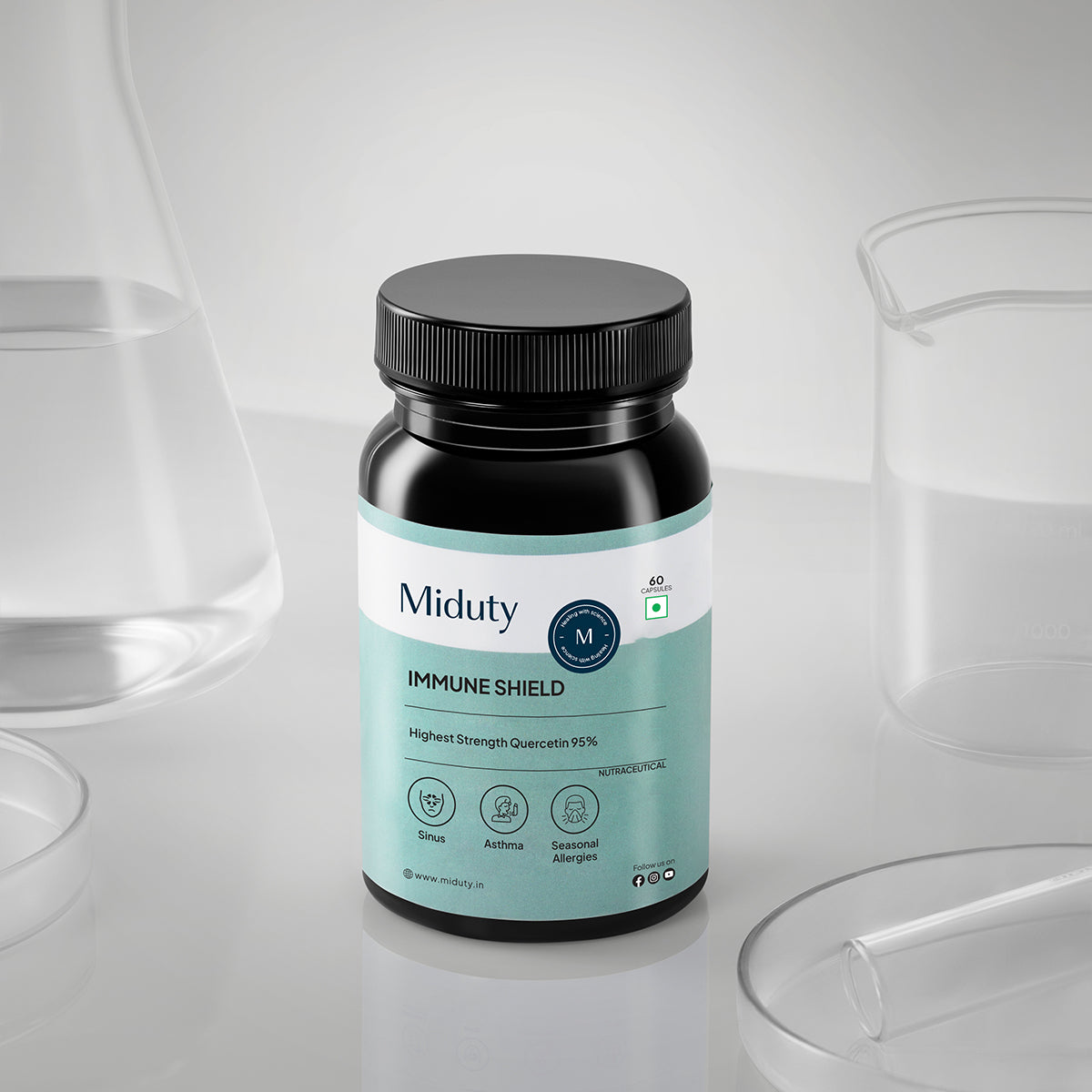
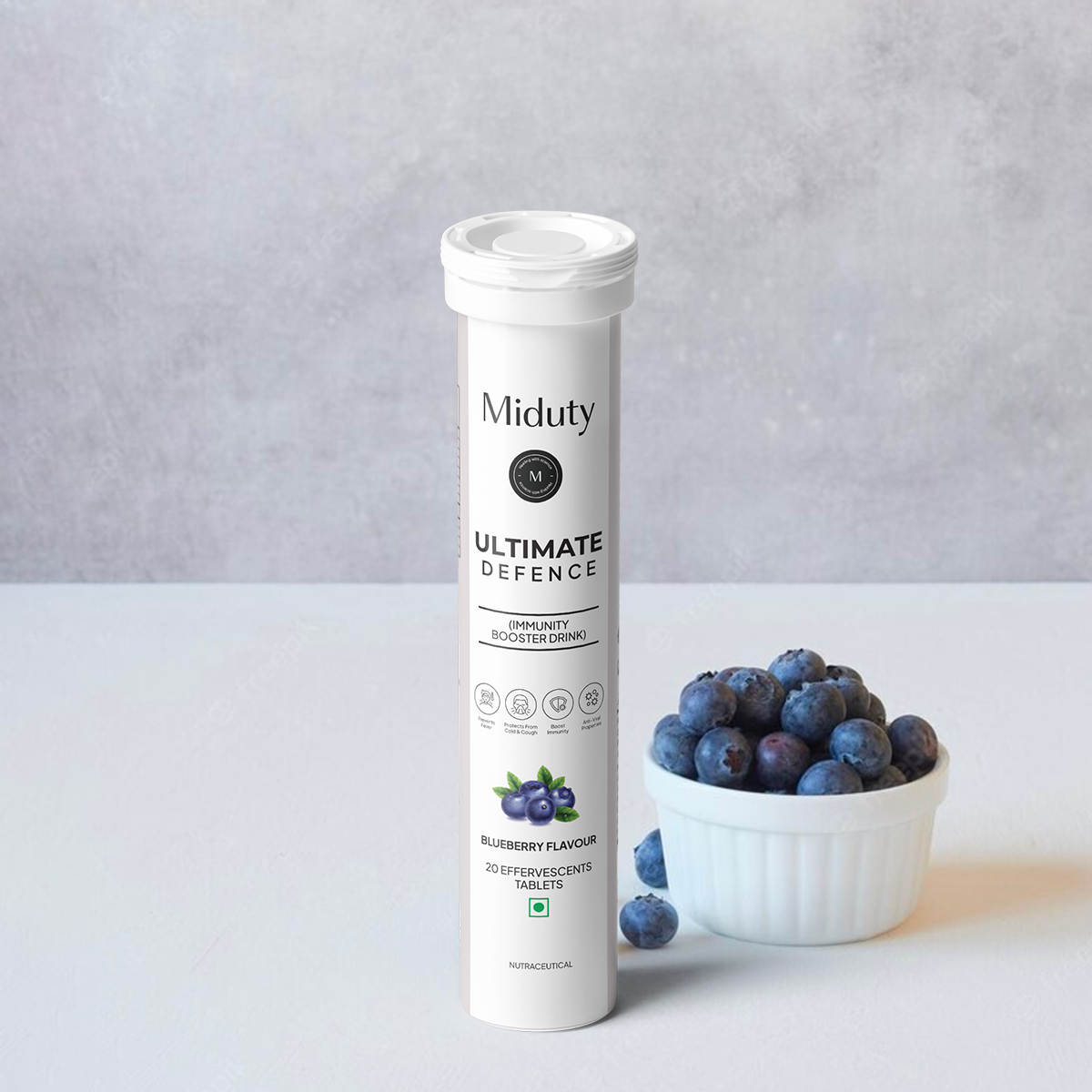
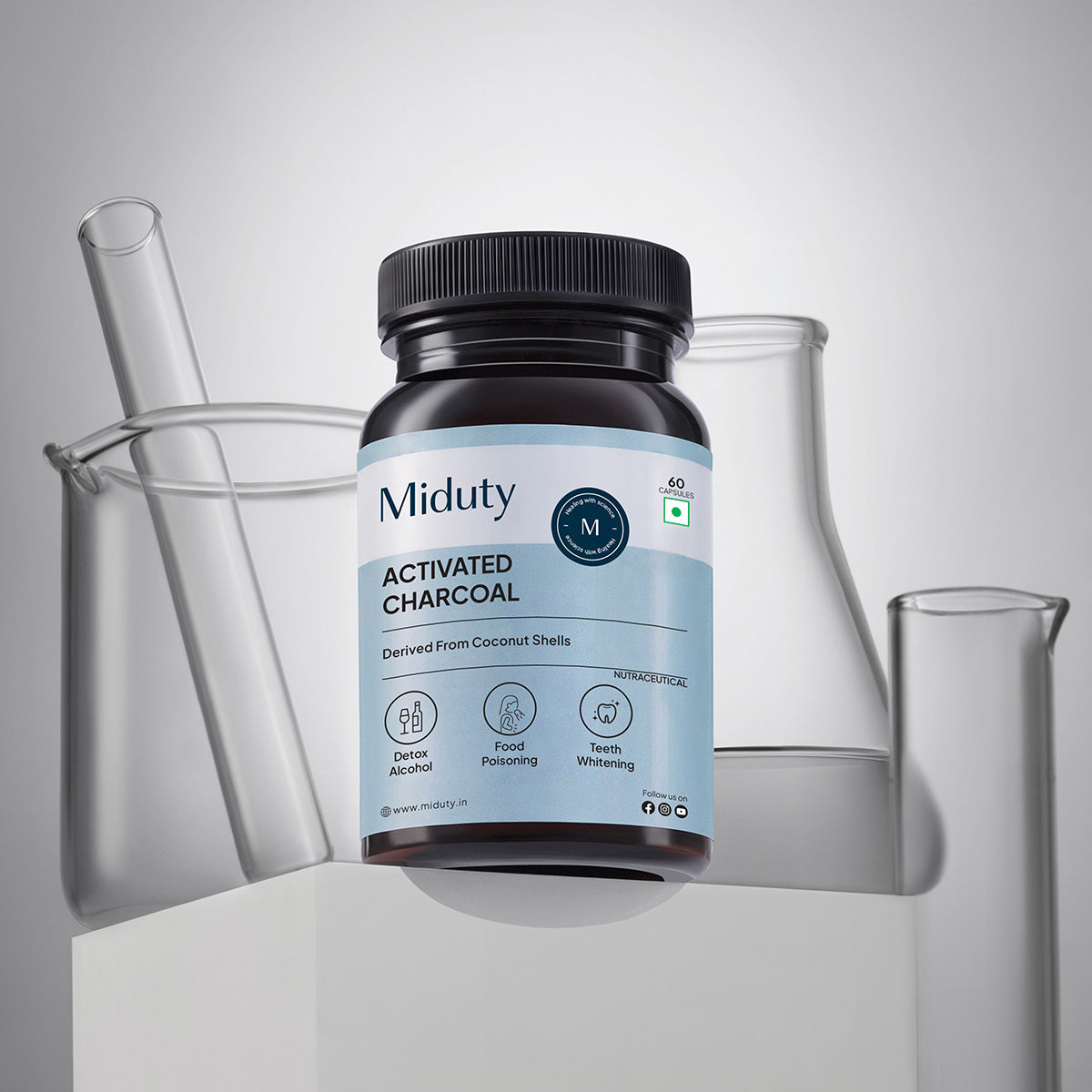
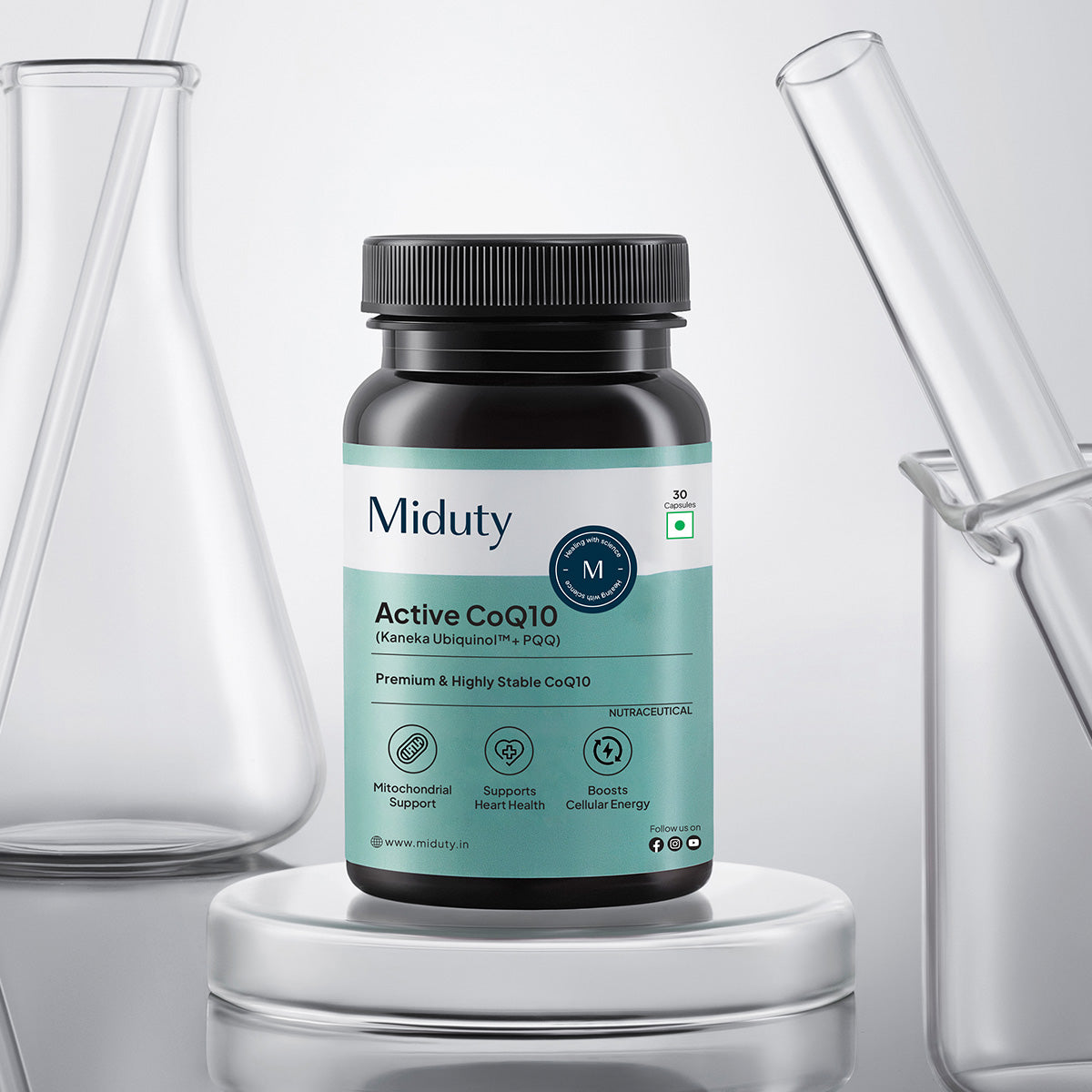
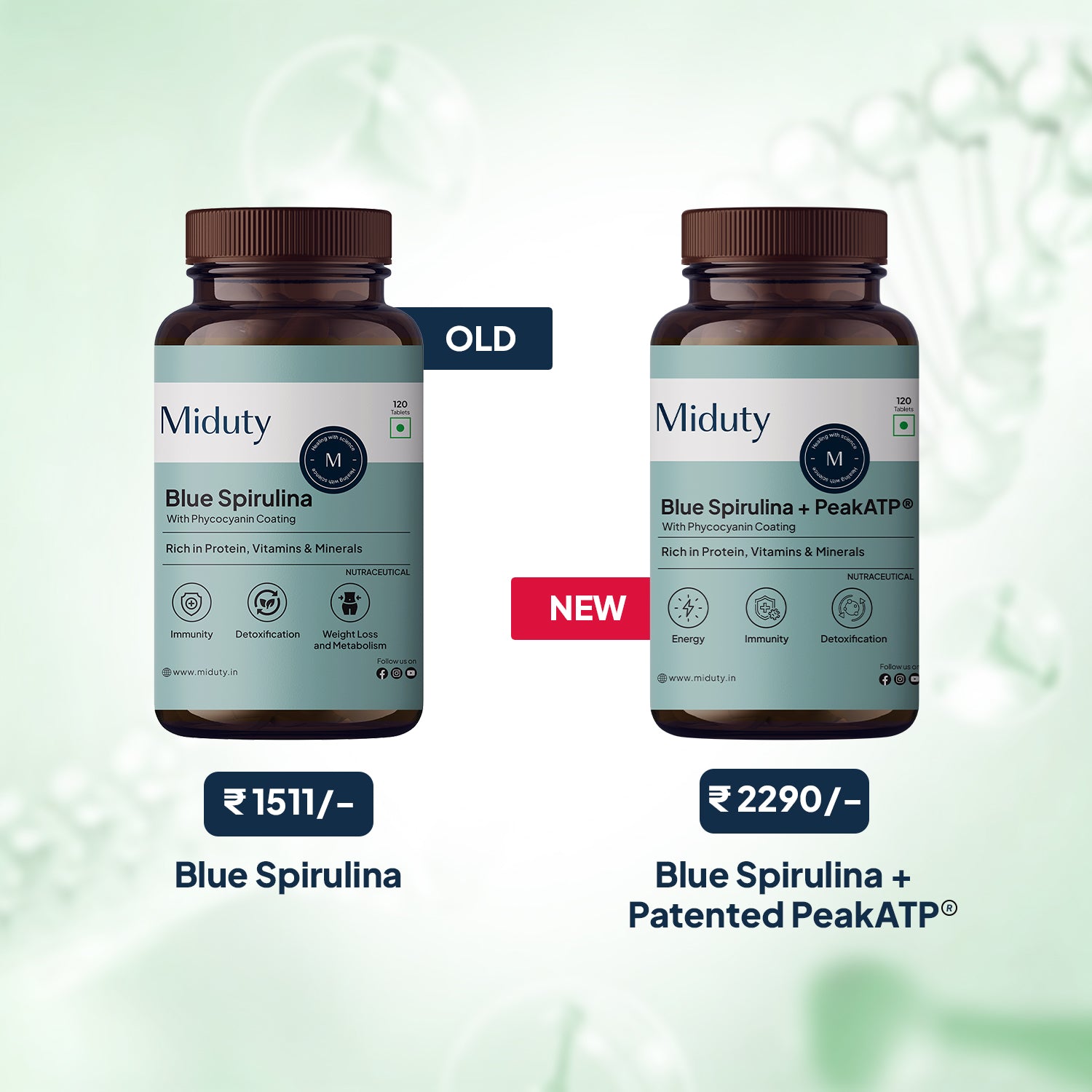






1 comment
What an amazing list. I love how you’ve included not just fruits and veggies but also spices, seeds and even dark chocolate for immunity. It’s a great reminder that a balanced, nutrient-rich diet really is our first line of defense. I also check out SheMed’s blogs sometimes for easy tips on staying healthy every day.